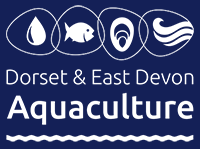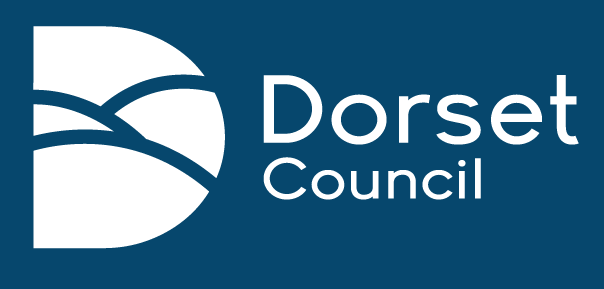Bounce Back Event
On Thursday, 3rd March 2022, Portland Economic Vision (PEV), chaired by Agincare CEO Raina Summerson, held their first event since the Coronavirus pandemic.
A Bounce Back Event was hosted at the Weymouth and Portland National Sailing Academy (WPNSA) and featured presentations from Dorset Council, b-side, Dorset Cleaner Fish Ltd and Jurassic Sea Farms ltd, Weymouth College, Eden Portland, Penn Estate and the WPNSA.
The event provided updates to local businesses on activity both throughout and post COVID, discussing priorities and issues relating to Portland. It showcased some larger local businesses and investment into the locality.
It was also an opportunity for the PEV to gain comments and feedback invaluable in assisting representations by the board to councils, the local MP and LEP.
A Welcome from PEV Chair
Raina Summerson
The event began with a brief word from Raina Summerson who thanked the WPNSA for hosting, and Dorset Council using the Welcome Back Fund for supporting the event.
The Portland Economic Vision board is a group of Portland business people who came together on the back of an economic vision plan about a 15-year vision for the island’s economic future. This work is endorsed within the neighbourhood plan and recognised by the council’s LEP and MP.
Made up of volunteers, the organisation relies on goodwill to support its promotion of that plan; with a focus on the economic growth, regeneration, skills creation and celebration of Portland.
The PEV are keen for business owners from across the island to share their thoughts and recommendations with the PEV, Raina also highlighted the events purpose as, “a celebration of what Portland has to offer; showcasing the economic growth and the investment that hopefully affects the community in a positive way for future generations.”
Aquaculture
Potential in Portland
Richard Prickett
The first presentation was delivered by Richard Prickett, Director of Dorset Cleaner Fish Ltd and Jurassic Sea Farms Ltd.
Richard began by stressing the scale of aquaculture production worldwide.
In 2018, the Food and Agriculture Organisation reported that 82 million tonnes had been produced from aquaculture that year. Of this, the United Kingdom contributed only 8000 tonnes, 26 tonnes of which was generated in Portland.
These figures highlighted the potential of aquaculture on the UK. What’s more, the sheltered, accessible nature of Portland Harbour, along with a water quality classification of A, make it an ideal location for the success of the industry.
Dorset Cleaner Fish Ltd and Jurassic Sea Farms Ltd are both based within Portland harbour and focus on two types of aquaculture recommended in a report by the Sea Fish Authority.
While the latter focuses on growing seaweed and shellfish, in partnership with local businesses The Crabhouse Café and Weyfish, the former is a more specialised company producing cleaner fish for the Scottish salmon industry.
Although there is potential for growth of aquaculture in the UK nationally, Richard fielded questions about the scalability of the project in Portland.
The competition for space on the south coast was identified as a limiting factor for expansion, particularly for high quantity products such as seaweed. However, Richard presented a vision of aquaculture partners working together across the south coast with an innovation centre in Portland as a national hub.
Dorset Council Update
Jon Bird
Jon Bird, Interim Service Manager for Growth and Economic Regeneration at Dorset Council began by looking back to the start of the Coronavirus pandemic and the expectations of economic depression.
With the subsequent national lockdowns, Dorset Council had turned its focus towards ‘Saving Lives, Saving Livelihoods.’
Thanks to government schemes and the distribution of grants to businesses across Dorset by Dorset Council, the worst was never realised.
In Portland, the introduction of the Additional Restrictions Grant, which offered support to small businesses not covered by larger grants, saw £600,000 distributed to 120 micro and small businesses.
This, Jon concluded, contributed to the lack of a spike in unemployment and business closures on the island during the pandemic. Jon was impressed by the Portland business community.
Weymouth College
Jayne Barnes & Charlotte Hibbs
Jayne Barnes (Head of Dorset Training Academy) and Charlotte Hibbs (Employer Engagement Consultant) used their presence at the event to talk to local business owners about improvements to their Employer Services.
Weymouth College now provides apprenticeship options, external partnerships and business development, a Dorset Training Academy and 106 Centre for Adult Skills.
This sees the fruition of a plan to create a one-stop-shop for business owners and people within the community to access information about training and opportunities.
This includes a suite of training solutions for businesses and individuals to upskill as well as a range of fully funded care skills, advice, guidance, and employability skills training.
Rather than questions, it was compliments that Jayne and Charlotte responded to at the end of their presentation. Attendees stressed the improvements to the service and the benefits of having an Employer Engagement Consultant visit local businesses to gain an understanding of their particular training needs.
Moving forward, Weymouth College is aiming to further expand its free, online industry focused training as well as increase their adult training offering with funding available for businesses.
The Penn Estate
Chris Holleyoak
Chris Holleyoak from The Penn Estate presented on the importance of tourism and the role that local attractions play on the success of the hospitality industry on Portland.
Owned by Morris Group, The Penn Estate comprises of Pennsylvania Castle, Clifftops, The Hayloft Café & Bar and an array of other accommodation and services, some of which can be accessed online.
Since their acquisition of the estate, Morris Group have invested £12 million into creating a unique, secluded haven for visitors to the island.
Chris is committed to working in partnership with the Portland community to develop and promote local attractions and businesses in the area.
The Penn Estate has already formed partnerships with local community groups and businesses include a 3-year sponsorship deal with the B-Side festival and funding further projects with neighbours, Portland Museum, to create a Church Ope Trail.
The presentation also updated attendees on plans for the estate to deliver net zero by 2030. This project ties in with wider ambitions of other opportunities such as Eden Portland, to regenerate the island into a biodiverse landscape.
b-side
Rocca Holly-Nambi
Rocca Holly-Nambi (Director or b-side) began with a video of the last b-side festival on Portland.
b-side is an internationally recognised arts organisation that aims to embody and enrich the Isle of Portland. In September each year, the organisation holds a festival showcasing work from local and international artists, bringing people together for a celebration of art and community.
Since 2012, the Portland economy has seen an injection of £7 million as a result of b-side projects with the Arts Council calculating that, for every £1 of public funding awarded to the arts, £6 is generated for the local economy.
Rocca highlighted the success of the previous b-side festival. 6,200 people visited the island to attend the event and 834 residents participated through workshops and exhibitions.
Through art, b-side introduces artists to the island and gives the community new tools to showcase and celebrate the uniqueness of Portland; its landscape, folklore and mythical stories, whilst also supporting local tourism and businesses.
Eden Portland
Sebastian Brooke
One of the most highly anticipated presentations was Sebastian Brooke’s update on Eden Portland, a partnership with Eden Project International Limited (EPIL), part of the Eden Trust.
Seb (Project Director) began by stressing the potential of the island to tell an enormous story, and to tell it in a way that no other place could.
Behind the project is an aim to restore biodiversity to the quarried landscape and, in doing so, create a national tourist attraction on the island.
Spread across two sites, the project would educate and inspire visitors to think about what is happening geologically to our planet.
A structure, designed as an architectural continuation of the clifftop, will provide a space for conservation, while a portion of the island’s underground mines will be reimagined through a marriage of technology and art in a unique visitor experience.
Eden Portland has received astounding public support; A public consultation held in 2018 welcomed 1,500 people and received a 96% approval rating.
Money will be raised through public funds, philanthropists and Eden borrowing in two key stages.
The first stage will enable the development of the mine and visitor facilities at a cost of £30 million. This could be funded predominantly by the Levelling Up Fund!
Stage 2 would require £29 million for the building of the conservation centre.
Upon completion, Eden Portland expects to welcome 340-450k visitors a year and be self-supporting from opening day. This would see an injection of £30 million into the local economy annually and introduce 130 direct jobs to the area.
WPNSA
Peter Allam
Concluding the presentations was Peter Allam, Chief Executive of the Weymouth and Portland National Sailing Academy.
Peter emphasised a clear aim for the academy: To prove that it hadn’t peaked in 2012 as hosts of the Olympic sailing events.
Since then, the WPNSA has continued to host world class events on a large scale, involving the best sailors in the world. It has also provided opportunities for those just learning to compete.
Although several key events stand out in their calendar, the academy also underpins these with weekend activities and works with onsite partners to deliver tuition and training for a range of water sports.
As a result, the WPNSA continues to play a vital role in establishing Portland as a hub for sailing in the UK. Each year, the academy attracts sportsmen from around the world and drives business to hospitality and tourism across Portland.
And as the event proved, it also provides great venues for a range of events!









